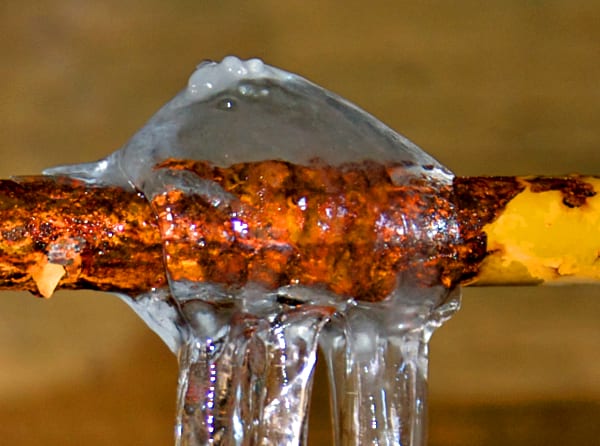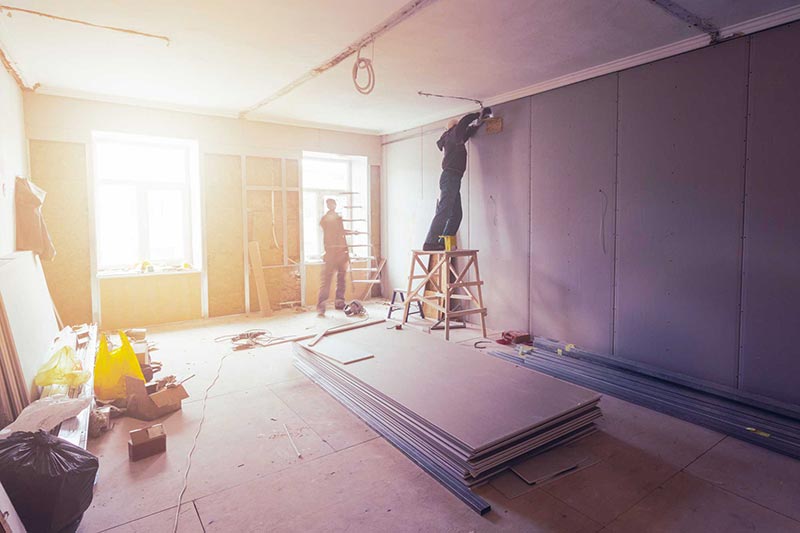
Frozen Water Pipe? Flooded Basement? Do This First
A Frozen Water Pipe and Flooded Basement Hassle
From the very start, we’ll shoot you straight: A frozen water pipe that ruptures and floods your basement is a big, costly mess to clean up. But don’t despair. We have some tips to help you manage the process and reduce cleanup costs (and some safety warnings).
Start by Reducing Risks of Frozen Water Pipes
The old saying goes, “An ounce of prevention is worth a pound of cure.” When it comes to water damage from a frozen water pipe that bursts and floods your basement, nothing has ever been more true.
So take some time before extreme cold weather to protect your water pipes and ensure that your property is as protected as reasonably possible from damage that a ruptured frozen water pipe and flooded basement can inflict on your property. Here are some suggested steps to take:
- Insulate exposed water pipes in crawl spaces.
- Never turn heat off when temperatures are forecast below freezing for extended periods.
- Open cabinets under sinks to circulate heated air to plumbing.
- Ensure proper sump pump operation and consider replacing sump pumps in operation for more than 10 years.
When the Worst Happens, Stay Safe
If a water pipe does freeze and flood the basement in your home or business, make sure you keep your head and think about safety. Remember:
- Electricity and water don’t mix. Keep electrical equipment clear of standing water. De-energize flooded structures.
- Floodwaters often contain chemical and biological contaminants such as sewage, pesticides and cleaning products. Protect yourself with safety equipment such as gloves and protective outerwear available at hardware stores. Thoroughly clean tools and yourself after working in floodwaters.
- Standing water can conceal sharp debris, tripping hazards and other dangers.
- Venomous insects, snakes and other dangerous pests can be displaced by floodwaters and become a safety risk.
Stop the Leak, Extract the Water, Get it Dry Fast!
Ok, you did what you could to prevent a frozen water pipe from freezing, rupturing and flooding your basement, but it happened anyway. You’ve assessed the safety hazards and are prepared to safely start the cleanup process. What next?
Start by making sure you repair the pipe that burst, effectively stopping the flow of water. Then you need to remove any standing water fast, before it literally erodes away building materials, loosens fasteners and breeds mold. In some cases, shop vacs will remove the water effectively. But for more than an inch or so of standing water, you will want to consider calling professionals with truck-mounted high-volume water pumps to get the water out fast.
After you get the standing water out, get as much air moving through the structure as you can to carry the remaining moisture out. Remove water-soaked items and materials, such as carpets and drywall. Once dry, ensure that all surfaces are disinfected and treated with fungicide, then rebuild and finish as necessary.
Call Professional Restoration for Flooded Basement Cleanup
If you find yourself with a frozen water pipe that ruptures and floods your basement, remember that time is money when it comes to protecting your property from water damage. Also remember that the experts at Professional Restoration have the know-how and state-of-the-art equipment to get your home or business restored fast, get it done right and save you money. Call Professional Restoration for Excellence in Property Damage Repair today!
More:
3 Best Water Damage Cleanup Practices
Water Damage Restoration and Your Insurance: 3 Great Resources
3 Denver Water Damage Cleanup Tips to Save $
U.S. Occupational Safety and Health Administration Flood Cleanup Facts

